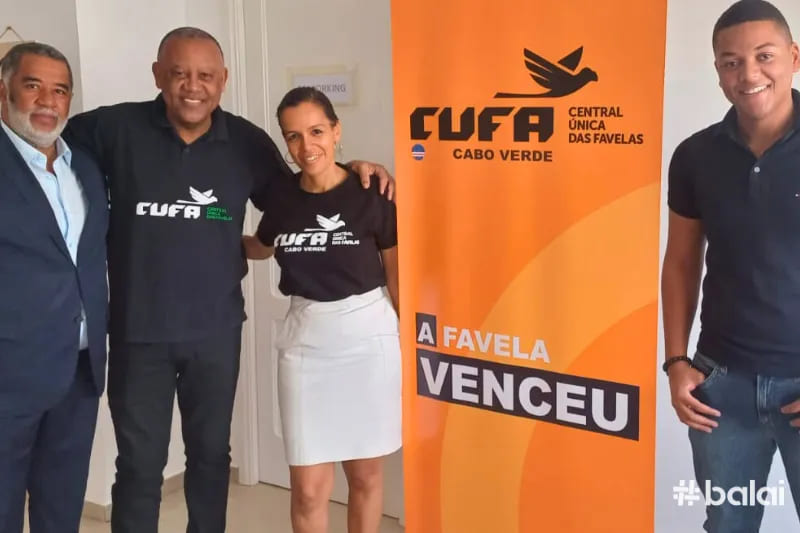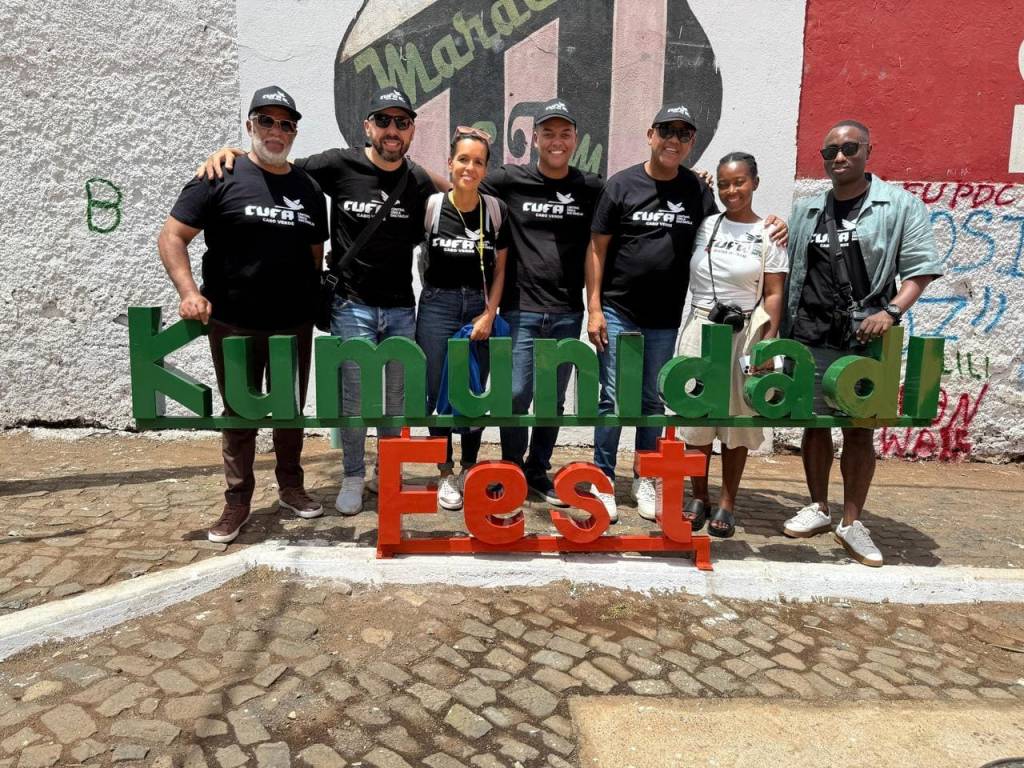Celso Athayde, founder of Central Única das Favelas, participated in Kumunidadi Fest, emphasizing that only those who experience inequality can lead real change in communities.
During a recent visit to Cape Verde, the founder of Central Única das Favelas (CUFA), Celso Athayde, reiterated that social transformation must be led by those who feel the impacts of inequality every day. “There is no social change without being led by those who suffer the consequences of disparity,” he stated during the Kumunidadi Fest, held in the Ponta d’Água neighborhood of Praia.
CUFA’s presence in the archipelago marks another step in the organization’s internationalization process. Today, it operates in 68 countries, with 14 of them on the African continent. Cape Verde joined CUFA’s global network through the efforts of local leaders, a movement that, according to Athayde, reflects the spirit of autonomy and collaboration guiding the institution’s work. “CUFA started in Brazil, but today it is a global organization,” he pointed out.
Founded in 1997 in Cidade de Deus, Rio de Janeiro, CUFA emerged from Athayde’s own experiences, having lived on the streets and in shelters before becoming one of the country’s most influential social articulators. The choice of the name “Central Única das Favelas” (Unified Central of Favelas) and the symbol of the smooth-billed ani, a bird often considered a bad omen, was intentional: to transform stigmas into power and pride.
During an interview with the Balai.cv portal, Celso shared the challenges faced in each new CUFA implementation around the world, especially in combating the stigmatized view of favelas. According to him, one of CUFA’s main objectives is to promote access to opportunities, qualifications, and support networks for those living in vulnerable contexts. “Elites in all countries share interests. The poor, however, fight for dignity, for access. Our role is to open doors.”

Athayde also highlighted that CUFA’s work is guided by respect for local autonomy. Each country defines its own mode of operation, with strategic support from the global network. “CUFA doesn’t impose models. We offer a platform, a network. The people of each country are the ones who will bring about change in that country,” he reinforced.
In Cape Verde, CUFA operates in partnership with the Social Development Hub, led by Susana Duarte. The proposal is to support and empower already active community leaders, valuing local identity and history. The Kumunidadi Fest was one of CUFA’s first initiatives in the country, bringing together residents, leaders, social organizations, and businesses to celebrate culture, solidarity, and community entrepreneurship.

The event also marked the beginning of other initiatives, such as Cape Verde’s possible participation in the World Forum of Favelas, the Criolo Class music competition, and the Taça das Favelas Global.
For Celso Athayde, the development of favelas involves valuing their talents, connecting with major partners, and strengthening entrepreneurship. “Money brings freedom. And freedom allows us to make choices. Without that, there is no real happiness,” he states.
CUFA thus continues to connect peripheral territories worldwide with a clear mission: to transform stigmas into opportunities and make every favela a hub of power, innovation, and an active voice in decisions that impact society.
Based on information from the Balai.cv portal.Original source: https://www.balai.cv/noticias/sociedade/nao-existe-mudanca-social-sem-ser-protagonizada-por-aqueles-que-sofrem-as-consequencias-da-diferenca-diz-fundador-da-central-unica-das-favelas


